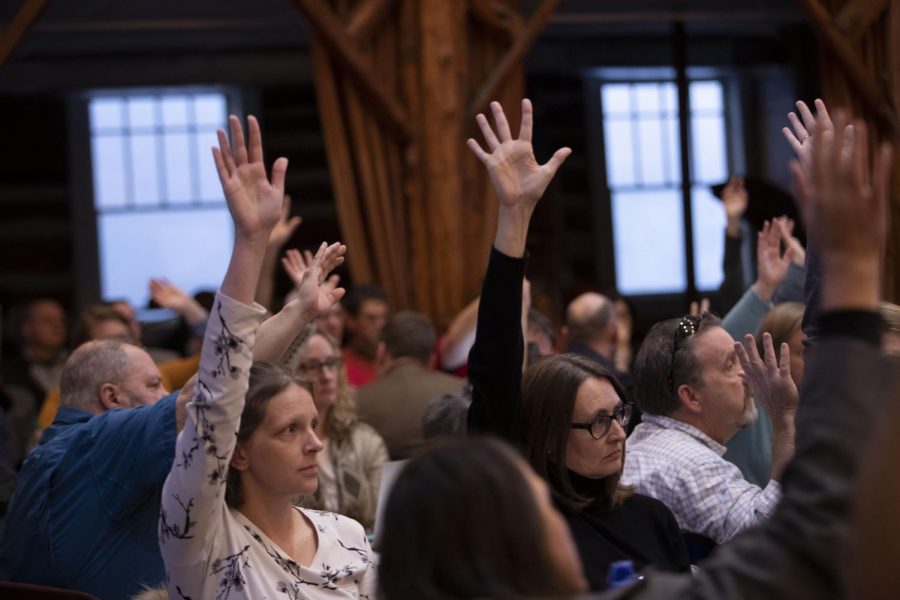Faculty Senate receives naming and symbols update, presentation on meal swipe donation
At the final Faculty Senate meeting of the semester on Dec. 12, 2019, several actions regarding funding for academics were passed.
February 17, 2022
The WKU Faculty Senate met on Feb. 17 for its monthly meeting to discuss a variety of topics including an update on the Naming and Symbols Task Force as well as a new SGA program.
President Caboni assembled the Naming and Symbols Task Force with the goal of “conduct[ing] a thorough examination of the history of WKU’s namings; explore options for how WKU might address those that might be problematic, and make recommendations for university leadership to consider,” according to its website.
Assistant Provost for Institutional Effectiveness Molly Kerby spoke at the meeting to give an update on the task force’s work.
“We came up with 11 recommendations to look at and I just want to go through those a little bit,” Kerby said. “I just didn’t want to leave it at that with no one knowing what was going on.”
Once finished with its work, the task force submitted its report and recommendations to the president who distilled the information into 11 goals.
“Some of these things have already been done, some of them we’re working on,” Kerby said.
An advisory committee was set up to do some of the fact finding for when the university wants to name a new building.
“Now this is just an advisory committee, they don’t have a formal decision to make but they do give advisement to the president,” Kerby said.
The non-disclosure agreements signed by members of the task force were brought up during the update by journalism professor Gordon McKerral.
“I would be remiss if I didn’t express again the disappointment that I had in terms of the initial committee meetings, which were completely closed and non-disclosured,” McKerral said. “I just can’t understand how a committee that was so important to our university, and so valuable, could operate in secrecy. It didn’t make sense to me then and it doesn’t make sense to me now, but you all have done a great job, and the follow up is greatly appreciated.”
To clarify, Kerby said the original task force had done its job and has been dissolved.
Of the 11 goals sent out by the president last summer, three goals regarded Jonesville, the primarily African American community demolished in the 1960s to expand the campus. The first of these goals was the establishment of a “work group.”
“One of the tasks was to get a working group together,” Kerby said. “This group is not formally together yet but all of the names have been put in a pot to get representation from the community, from faculty, from staff. The president is going to send out a formal invitation inviting people to be a part of this group.”
The second Jonesville-oriented goal, according to Kerby, was to set up a place on campus to commemorate and provide the historical background of Jonesville.
The last Jonesville goal was to set up a reunion. According to Kerby, that reunion was going to be scheduled around the time of Homecoming.
Other goals of the task force included adding bilingual staff in the admissions office and discussions of ISEC budgets.
“These are things we’re keeping up with and trying to create some solutions to,” Kerby said.
Also discussed at the meeting was the Student Government Association’s new meal swipe donation program.
Presented by Matthew Wininger, SGA president, the meal swipe donation allows students to donate their unused swipes to students who may be struggling with food insecurity.
“Faculty, staff and students can donate on the fourth, eighth and twelfth weeks of the semester,” Wininger said. “Students in need can then apply for five or ten meal block plans up to two times a semester.”
Investigative Reporter Michael Crimmins can be reached at [email protected]. Follow him on Twitter @michael_crimm
























